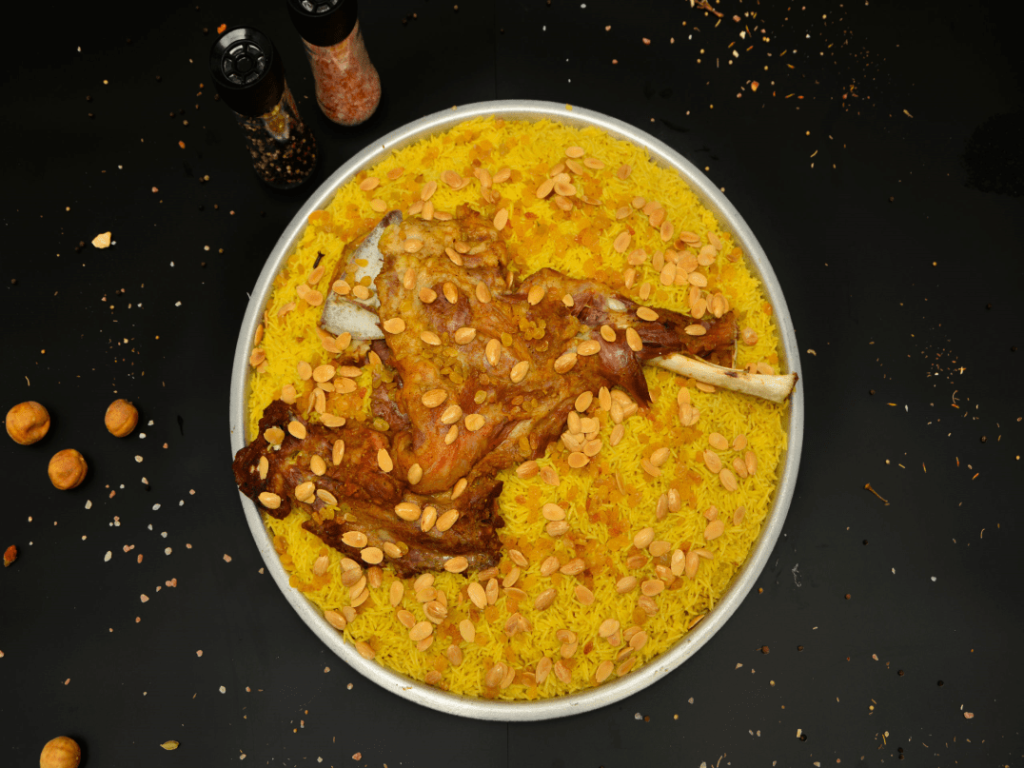Welcome to a culinary adventure into the heart of Bedouin tradition! Today, we’re exploring zarb, a unique and mouthwatering cooking method deeply rooted in the culture of the desert, particularly in places like Wadi Rum, Jordan. More than just zarb food, it’s an experience that connects you to the land, the people, and a time-honored way of preparing incredibly flavorful meals. Get ready to discover the magic behind this underground barbecue!
What is Zarb? Unearthing a Culinary Tradition
Zarb isn’t just a zarb dish; it’s an ancient Bedouin technique of cooking meat and vegetables in an underground oven. Imagine a natural pressure cooker, fueled by hot coals and sealed beneath the desert sands! This slow-cooking process results in incredibly tender and flavorful food that simply falls off the bone.
The Zarb Cooking Process:
- Preparing the Oven: A pit is dug deep into the sand.
- Heating the Stones: A large fire is built within the pit, and stones are placed directly in the flames to absorb the heat.
- Lowering the Food: Once the stones are scorching hot and the fire has died down, racks of marinated meat (usually lamb or chicken) and vegetables (like potatoes, carrots, and onions) are lowered into the pit.
- Sealing the “Oven”: The pit is then covered with layers of metal sheeting and blankets, trapping the heat and steam.
- Slow Cooking to Perfection: The food is left to cook slowly for several hours, allowing it to become incredibly tender and infused with smoky flavors.
The Flavor of the Desert: Why Zarb Tastes So Good
The unique cooking method of zarb imparts a distinctive and delicious flavor to the zarb dish:
- Tenderness: The trapped heat and steam create a slow-cooking environment that makes the meat exceptionally tender.
- Smoky Infusion: The hot stones and embers release a subtle smoky aroma that permeates the food.
- Natural Juices: The sealed environment helps the food retain its natural juices, resulting in moist and flavorful results.
- Earthy Notes: Some believe that the earth itself subtly contributes to the unique taste of zarb food.
Experiencing Zarb: More Than Just a Meal
Enjoying zarb is often more than just eating; it’s a cultural experience, especially in places like Wadi Rum:
- Communal Dining: Zarb is often prepared for groups and shared communally, fostering a sense of togetherness.
- Bedouin Hospitality: Being invited to partake in a zarb meal is a sign of warm Bedouin hospitality.
- Desert Setting: Eating zarb under the vast desert sky, surrounded by the stunning landscapes of Wadi Rum, adds to the magic of the experience.
- Traditional Preparation: Witnessing the zarb being unearthed from its sandy oven is a unique and memorable sight.
Finding Zarb: A Taste of Jordan
If you’re planning a visit to Jordan, particularly Wadi Rum, seeking out a zarb dish experience is highly recommended. Many Bedouin camps and local restaurants offer this traditional culinary delight.
Where to Find Zarb:
- Wadi Rum Camps: Most Bedouin camps in Wadi Rum include a zarb meal as part of their overnight stays or tours.
- Local Restaurants in Southern Jordan: Some restaurants in areas surrounding Wadi Rum and Petra may offer zarb.
- Specialty Culinary Tours: Look for culinary tours that focus on traditional Jordanian cuisine and include a zarb experience.
Learning About Culture Through Food: The Significance of Zarb
Zarb food represents more than just sustenance; it’s a tangible link to the traditions and resourcefulness of the Bedouin people who have thrived in the desert for centuries. The method of cooking underground showcases an ingenious adaptation to their environment. Sharing zarb is an act of hospitality and a way of preserving and passing down cultural heritage.
To further explore the rich culture of Jordan and the Arabic language, we invite you to visit www.kaleela.com. Our platform offers engaging lessons and cultural insights to enhance your learning experience. Download the Kaleela Arabic learning app today and discover the fascinating connections between language, culture, and even delicious zarb!



